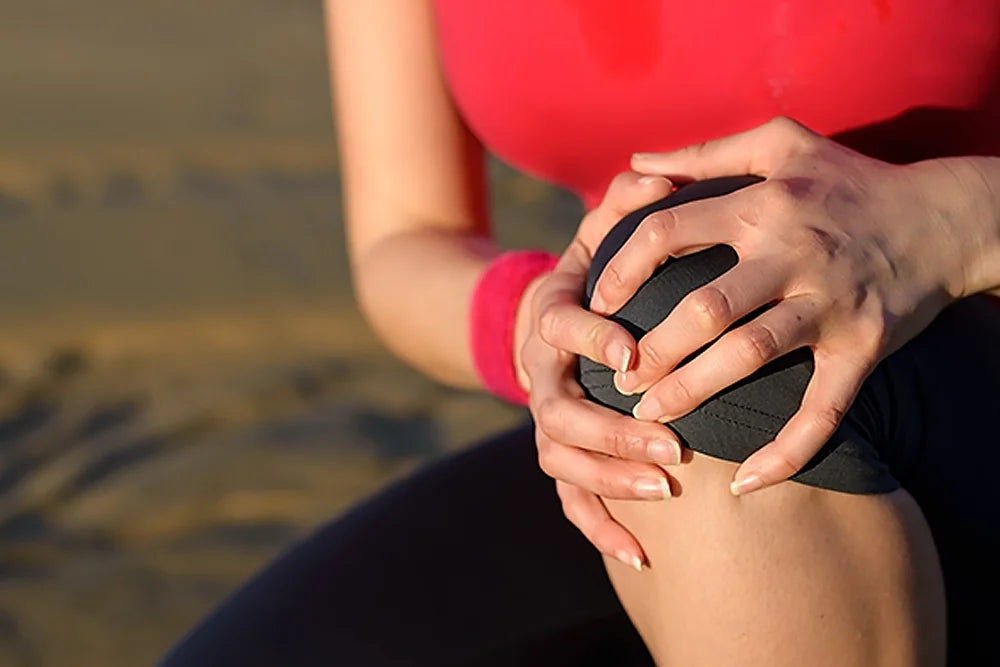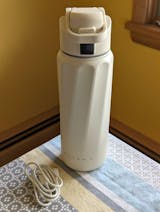
Joint Health and Hydration: Why Staying Hydrated Keeps You Moving Smoothly?
Your joints keep you moving, whether walking, running, or even bending down to tie your shoes. Without healthy joints, the simple acts of everyday life would become painful and difficult. That’s where hydration comes in. Staying properly hydrated isn’t just good for your skin and energy levels—it is crucial to keeping your joints lubricated, flexible, and discomfort-free. In this blog, we’ll explore how hydration impacts joint health and why drinking enough water is essential for staying active and pain-free.
Understanding joint health

Joints are the areas where two or more bones meet. There are various types, from the hinge joints in your knees and elbows to the ball-and-socket joints in your shoulders and hips. Joints allow for multiple movements and are essential for everything from simple daily tasks to athletic performance.
As we age or put extra stress on our bodies, joints can wear down. Some of the most common joint problems include:
- Arthritis: Inflammation of the joints, often accompanied by pain, stiffness, and swelling. Osteoarthritis and rheumatoid arthritis are two of the most common forms.
- Bursitis: Inflammation of the small fluid-filled sacs (bursae) cushion the joints.
- Tendinitis: Inflammation of the tendons, often caused by repetitive motion or overuse.
While there’s no way to completely prevent joint problems, understanding how to keep them in top shape can help reduce the risk of pain and injury.
One key component of joint health is synovial fluid—the clear, thick liquid that lubricates the joints. This fluid reduces friction between the cartilage and bones, allowing smooth, pain-free movement. But just like any other part of the body, synovial fluid needs a little help to stay at its best, and hydration is a major factor in keeping it functioning properly.
The importance of hydration for your joint health

Hydration refers to providing your body with the fluids it needs to carry out vital functions. Water involves nearly every bodily process, from temperature regulation and digestion to nutrient transport and joint lubrication.
The amount of water you need can vary depending on several factors, including your age, weight, activity level, and even your climate. A general guideline is to drink at least 8 cups (64 ounces) of water daily, but some people may need more, especially if they are active or live in hot climates. The Institute of Medicine recommends about 3.7 liters (125 ounces) for men and 2.7 liters (91 ounces) for women, including all fluids from food and drink.
Dehydration can be sneaky. Even mild dehydration can hurt joint health and your overall well-being. Common signs of dehydration include:
- Dry mouth or sticky saliva
- Dark yellow urine
- Fatigue or dizziness
- Joint stiffness or pain
- Headache
The link between hydration and joint health
Your body’s synovial fluid is made up of water, and staying hydrated helps maintain its volume and viscosity. When you’re well-hydrated, synovial fluid works efficiently to cushion your joints and allow smooth movement. Dehydration can reduce its effectiveness, leading to increased friction in the joints and the potential for pain or discomfort.
Inflammation is one of the leading causes of joint pain, especially in conditions like arthritis. Hydration helps to flush out toxins that contribute to inflammation in the body, allowing your joints to stay healthier. Additionally, water helps the body regulate inflammatory markers, potentially reducing the severity of joint inflammation.
Cartilage is the smooth, elastic tissue that covers the ends of your bones, preventing them from rubbing together. It needs to stay hydrated to maintain its function. When dehydrated, your cartilage may not get the nutrients it needs to stay healthy, leading to wear and tear over time. Proper hydration helps cartilage absorb nutrients more efficiently and reduces the risk of damage or degeneration.
Practical tips for staying hydrated
Making sure you're properly hydrated doesn't have to be difficult. Here are a few tips to help you stay on top of your hydration game:
Daily hydration strategies
- Carry a water bottle: Keep a water reminder water bottle with you throughout the day so you’re always reminded to drink.
- Set reminders: Use your phone or an app to remind you to take a drink every hour.
- Drink before you're thirsty: When you feel thirsty, your body may already show signs of dehydration. Try to sip water regularly throughout the day.
Foods that hydrate
You don’t have to rely solely on water to stay hydrated. Many fruits and vegetables are packed with water and can contribute to your hydration needs, such as:
- Watermelon
- Cucumbers
- Oranges
- Strawberries
- Celery
These hydrating foods are also rich in antioxidants and anti-inflammatory compounds, which can further support joint health.
Hydration and exercise
Physical activity increases the body’s need for water. When you exercise, you lose fluids through sweat, and staying hydrated helps keep your joints lubricated during movement. Be sure to drink water before, during, and after exercise to support your joints and muscles.
Personal stories and case studies
Many people have noticed significant improvements in their joint health by increasing their water intake. For example, a study of older adults with knee osteoarthritis found that those who stayed hydrated had lower pain and stiffness levels than those who didn’t drink enough. Personal stories from those dealing with joint discomfort show how rehydrating properly helped reduce inflammation and move more comfortably.
FAQs
How does hydration help with arthritis?
Proper hydration helps reduce inflammation, a key factor in managing arthritis symptoms. It also helps maintain synovial fluid in the joints, keeping them lubricated and reducing pain.
Can I drink other fluids besides water for hydration?
Yes, other fluids like herbal teas, coconut water, and even foods high in water content (like fruits and vegetables) can contribute to hydration. However, water is the most effective and calorie-free option.
What are the best times to hydrate throughout the day?
Drink water throughout the day, especially after waking up, before meals, and during exercise. Consistent hydration is key to supporting joint health and overall well-being.
Conclusion
Joint health is essential for staying active, and hydration is a key part of the equation. Drinking enough water can keep your synovial fluid functioning at its best, reduce inflammation, and maintain cartilage health. Incorporating hydration into your daily routine is an easy, effective way to support joint health and enjoy a more pain-free, mobile lifestyle. So, the next time you reach for your water bottle, remember: it's not just about quenching your thirst—it's about keeping your joints moving smoothly for years. Follow WaterH to find more practical tips for staying hydrated.

















